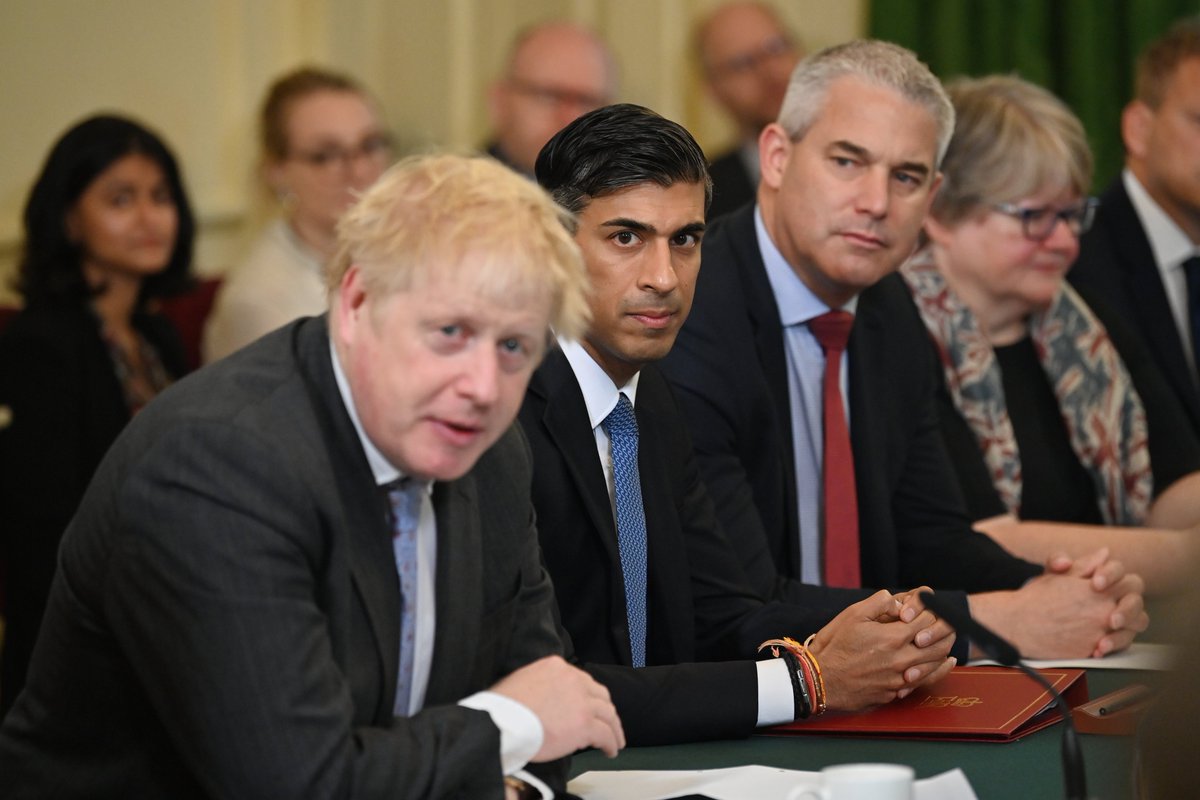
From George Washington fighting for the Americas to today’s hero, Zelensky, leaders continue to rise from the ashes of history.
newstatesman.com/ideas/2022/03/…
newstatesman.com/ideas/2022/03/…
Zelensky, a leader on the periphery of Europe, fighting against impossible odds with Western commentators comparing him to legendary figures of the past with some even willing to risk global war to support him. He is the essence of charisma. 

🟥But charisma is a more complicated phenomenon than is often realised. Charisma always resides, at least in part, in the eye of the beholder.
🟥The appeal of charismatic figures such as Zelensky derives in large part from the perceived contrast between them and the leadership class in the admirers’ own countries.
As this hyperbole suggests, so intense is the longing for charismatic figures, especially in moments of crisis, that their images can easily take on lives of their own and float upwards, straight into the realm of myth. 

🟥Historically, this sort of charismatic authority has almost always been a double-edged sword.
Charismatic leaders can inspire powerful collective action. Without the heroic, charismatic and widely trusted Washington available to serve as the first chief executive of the USA, it is unlikely that America states would have ratified the 1787 constitution and what it created. 

But the process is also laden with danger. The bond between charismatic leaders and their followers is deeply emotional, and usually grounded in an idealised image of the leader. 

The history of the 20th century is likewise replete with examples of charismatic revolutionary leaders who have taken power with real popular support only to become authoritarian (Fidel Castro, Gamal Abdel Nasser, Robert Mugabe, and so on). 

These transitions have been all the easier when foreign admirers, still under the thrall of the leader’s original charismatic reputation, continue to provide support and reinforcement. 

Some of the principal qualities which Zelensky’s Western admirers perceive in him are similar to those that have made Putin appear charismatic to much of Russia. The same qualities made Trump appear charismatic to his supporters, leading them to storm the US Capitol. 

All too many charismatic revolutionaries, applauded around the world for overthrowing vicious, corrupt dictatorships, have ended up as vicious, corrupt dictators themselves (think, recently, of Daniel Ortega in Nicaragua). 

It becomes all too easy for them to believe the hyperbolic praise heaped on them in moments of despair by anxious followers desperate for a saviour. They too start to believe the myth.
newstatesman.com/ideas/2022/03/…
newstatesman.com/ideas/2022/03/…
• • •
Missing some Tweet in this thread? You can try to
force a refresh












